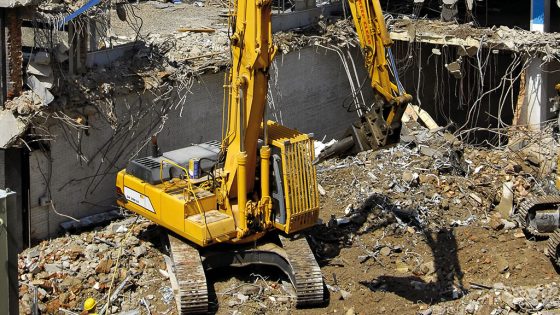Greater use of technology in the construction sector could boost the UK economy by £417bn within two and a half decades, according to a study by Costain.
The UK’s 16th biggest contractor found that extensive use of connected and autonomous plant (CAP) in the industry could bring £356bn worth of benefits by 2050. It concluded that producing and selling more CAP to the rest of the world could reap an extra £61bn.
Costain also found that greater use of CAP on site could create more than 50,000 high-skilled industry jobs by 2050, as well as boost safety and net zero standards.
Currently, the UK is a net exporter of construction plant and equipment, in a global market worth £15bn annually, according to the Construction Equipment Association.
Costain’s managing director for transportation, Jonathan Willcock, said the study – which the contractor carried out for the Department for Transport – showed that CAP “has the potential to transform the productivity of construction activities and, in turn, give a significant boost to the UK economy over the coming decades”.
But he added: “We’re already seeing CAP being deployed on projects across the country, but in order to scale up and achieve the benefits faster, there needs to be a shift in thinking to embrace this technology and drive positive change.”
Costain estimated that about one-fifth of construction plant currently in use has some level of connectivity and autonomy, including compactors, excavators and bulldozers.
While the company found that wider use of CAP could lead to a reduction in the construction sector workforce of 25,400 people, due to increased productivity, it found that 54,800 more highly paid jobs would be created by embracing new technologies.
Adopting CAP more widely, Costain added, could increase the average wage in the sector by 12 per cent, from the expected figure of £49,000 to £54,900.
Potential uses include “hauling materials on a preset GPS path, excavation within defined parameters or construction activities such as 3D printing”.
“These changes to the distribution of jobs may address current challenges faced within the sector, such as an ageing workforce, and may also increase diversity by making work more accessible, and by increasing the safety and wellbeing of employees,” Costain said.
The analysis also found that adopting CAP would improve safety on site, reducing the number of accidents by 28,000 in the period up to 2050, and leading to 31 fewer deaths. That could also mean a reduction of £6bn in costs caused by injuries, Costain suggested.
Benefits would also be felt in the net-zero effort, according to the contractor, as efficiencies from technology adoption would lead to less fuel usage. Currently, the plant sphere contributes about 5 per cent of the emissions of a road project, according to the World Road Association.
Adopting CAP could also cut carbon dioxide emissions on rail and road projects by around 19,300 kilotons by 2050, Costain found.
The contractor did however identify a number of barriers to growth in the CAP, including a lack of government support for technological development, a lack of regulation mandating the use of CAP (which is delaying its implementation), and a lack of awareness among the industry’s decision-makers about the benefits of CAP.
Costain further warned that the current procurement model “disincentivise[s] innovation”, as there are no requirements for clients or contractors to use the technology, while the cost of adopting CAP is also proving a barrier across the supply chain.
The UK has committed to reaching net zero by 2050, and the construction sector – which is responsible for a quarter of the UK’s greenhouse gas emissions – is also moving to reduce its impact on the environment.
For instance, from the beginning of next year, contractors working in London will need to cut the emission levels of their plant machinery.

